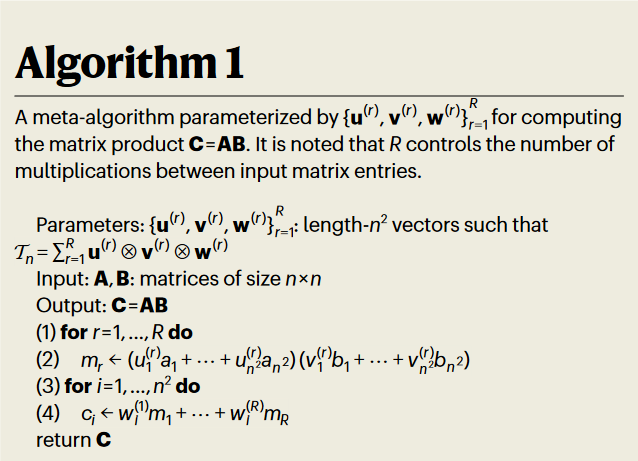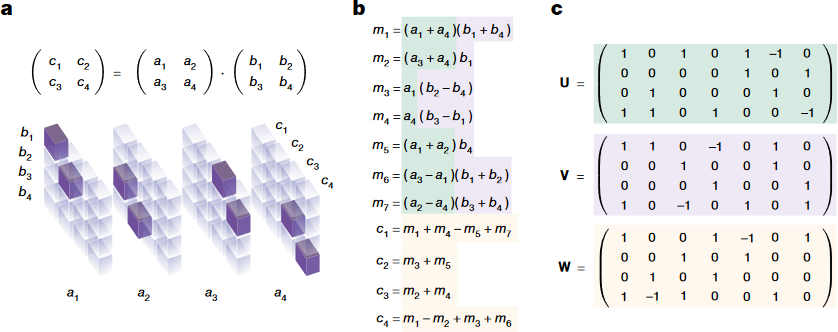AlphaTensor
Goal: Discover faster (matrix multiplication) algorithms with RL.
Contribution: Discover SOTA algorithms for solving several math problems.
Concept
Overview of AlphaTensor, from DeepMind Blog.
Single-player game played by AlphaTensor, where the goal is to find a correct matrix multiplication algorithm. The state of the game is a cubic array of numbers (shown as grey for 0, blue for 1, and green for -1), representing the remaining work to be done.
-
Formulate the matrix multiplication problem as a tensor decomposition problem.
This is discussed in previous works such as (Lim 2021, p.67, Example 3.9).-
Represent a matrix multiplication algorithm as a tensor.
A
-
Execute the matrix multiplication algorithm base on the decomposition of the tensor.
from Algorithm 1 of Fawzi et al., 2022.

Example: The tensor and its decomposition of Strassen's algorithm (
Matrix multiplication tensor and algorithms, from Fig.1 of Fawzi et al., 2022.



Please note that the (column) vectors
- The elements
- The elements
- The elements
- The elements
-
-
Formulate the tensor decomposition problem as a game named TensorGame.
- State:
- Action:
- Terminate Condition: when
- Reward:
- State:
-
Solve the TensorGame with DRL and MCTS.
- Network Architecture:
- Torso: Modified transformer architecture.
- Policy head: Transformer architecture.
- Value head: 4-layer MLP that outputs estimation of certain quantiles.
- Demonstration Data: Random sample factors
- Objective: Quantile regression for value network
-
Input Augmentation: Apply random change of basis on
Overview of AlphaTensor, from Fig.2 of Fawzi et al., 2022.

Please refer to the paper for figures of the architecture.
- Network Architecture:
Results and Costs
- Results
- SOTA matrix multiplication algorithm for certain size of matrices.
- SOTA algorithm for multiplying
- Re-discover the Fourier basis.
- Training Costs
- A TPU v3 and TPU v4, takes a week to converge.
Official Resources
- [Nature 2022] Discovering faster matrix multiplication algorithms with reinforcement learning [paper][blog][code] (citations: 98, 78, as of 2023-04-28)
